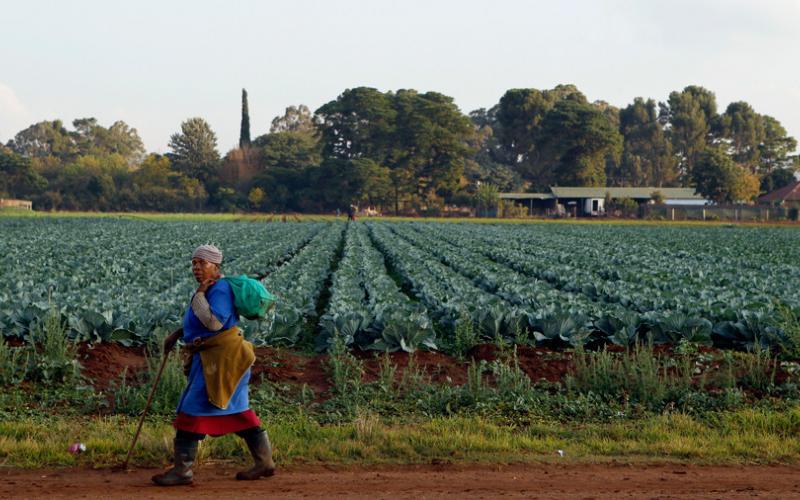by NOMBUSO MATHIBELA
 PHOTO/RT
PHOTO/RT
After years of supporting a market-led land reform programme and not heeding criticisms of this policy, the African National Congress (ANC) leadership has adopted a radical policy of land expropriation without compensation, which would make it legal and within the constitutional bounds for the state to expropriate land in the public interest without compensation.
This radical thesis was adopted in the ANC’s 54th National Conference in December 2017 and subsequently most vehemently motioned in the National Assembly by the opposition party, the Economic Freedom Fighters (EFF). The motion was passed with 241 parliamentarians in favour and 83 against the motion. Slight amendments were made by the ANC mainly that it should be the task of Parliament’s Constitutional Review Committee to review the property clause under Section 25 of the constitution and this committee would have until 30 August 2018 to complete this work.
Moreover, the ruling party has reiterated that the government would pursue the expropriation of land without compensation without endangering or destabilising agricultural production, ensuring food security is not compromised, and financial services, which hold nearly 70 percent of commercial farmers’ debts, are not negatively impacted. The motion does not immediately lead to expropriation without compensation, but appoints a committee that will review the constitution in line with the proposition for land expropriation without compensation.
Unfortunately, the motion in itself is indefinable, unclear on a way forward and in the absence of details opportunism has captured the debate reducing it to popular slogans that tug at the hearts of people who have been struggling for space to reproduce life and those who have eyed land reform as key site for historical justice.
The story of land dispossession in South Africa, as argued by Hendricks, Ntsebeza and Helliker can neither be understood nor resolved without addressing race, in so far as blackness still coincides and socially denotes poverty and is linked to an identity of landlessness and dispossession as opposed to an identity of property and wealth held by whites. The history of land dispossession itself dates back to the expansion of the Dutch colonial settlement in the Cape in 1652 through the Dutch East India Company with Jan Van Riebeeck at its helm. The imposition of early settler colonial rule was marked by Dutch land occupation and fierce resistance waged by the indigenous inhabitants of the Cape area, the Khoi San.
The 19th century is characterised by accelerated land dispossession and intense resistance waged by African people in response to their loss of land, livestock and political power. This period is also marked by the expansion of land dispossession and conquest to other parts of South Africa by the Dutch and British settlers. The “discovery” of minerals in parts of the country added to the rapid acceleration of land dispossession with the intention to force African people to become cheap labourers in newly established mines.
Pambazuka for more
